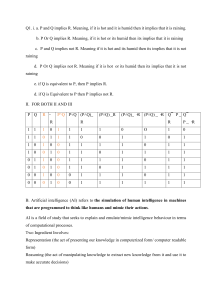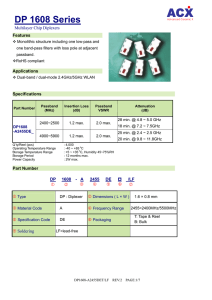1. Suppose (a, b)=1,a|c, and b|c. Show that ab|c. Because (a, b)=1
advertisement
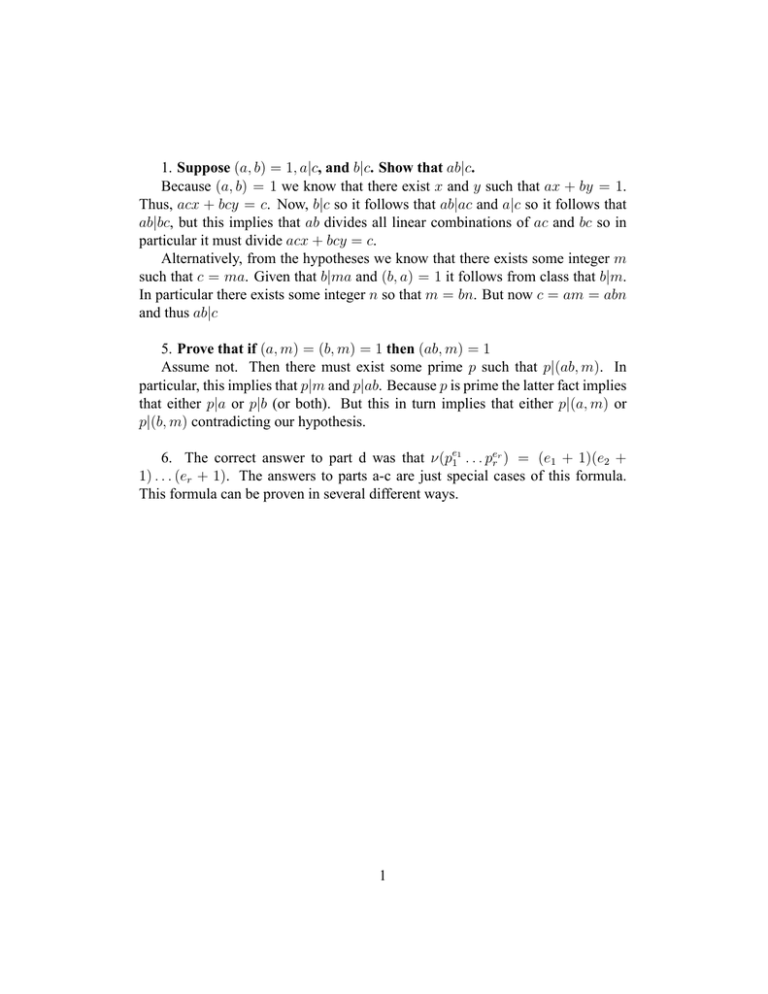
1. Suppose (a, b) = 1, a|c, and b|c. Show that ab|c. Because (a, b) = 1 we know that there exist x and y such that ax + by = 1. Thus, acx + bcy = c. Now, b|c so it follows that ab|ac and a|c so it follows that ab|bc, but this implies that ab divides all linear combinations of ac and bc so in particular it must divide acx + bcy = c. Alternatively, from the hypotheses we know that there exists some integer m such that c = ma. Given that b|ma and (b, a) = 1 it follows from class that b|m. In particular there exists some integer n so that m = bn. But now c = am = abn and thus ab|c 5. Prove that if (a, m) = (b, m) = 1 then (ab, m) = 1 Assume not. Then there must exist some prime p such that p|(ab, m). In particular, this implies that p|m and p|ab. Because p is prime the latter fact implies that either p|a or p|b (or both). But this in turn implies that either p|(a, m) or p|(b, m) contradicting our hypothesis. 6. The correct answer to part d was that ν(pe11 . . . perr ) = (e1 + 1)(e2 + 1) . . . (er + 1). The answers to parts a-c are just special cases of this formula. This formula can be proven in several different ways. 1
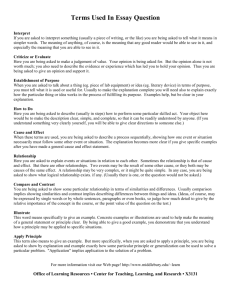
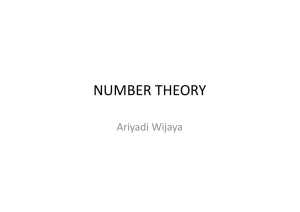
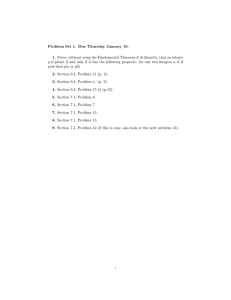

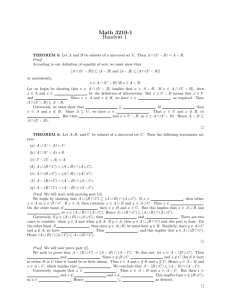
![SOLUTION OF HW3 September 24, 2012 1. [10 Points] Let {x](http://s2.studylib.net/store/data/011168953_1-36e45820ffc71e8ec27ae652a93485b4-300x300.png)
